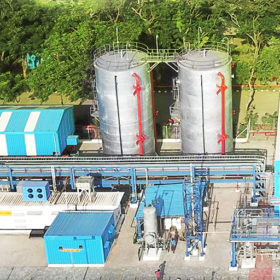A new briefing note by Institute for Energy Economics and Financial Analysis (IEEFA) says the proposed reforms to the design of India’s electricity market will help pave the way for the rollout of large-scale, ultra-low-cost variable renewable energy.
The power ministry has recently proposed a market-based economic dispatch (MBED) mechanism for procuring bulk power to begin in April 2022. In another progressive market development, India’s Central Electricity Regulatory Commission (CERC) has come up with regulations for Frequency Control Ancillary Services (FCAS).
The IEEFA note looks at the benefits and potential roadblocks to the implementation of these two key reforms and argues that they are important steps towards transforming India’s power sector into a low-emissions, low-cost, and profitable part of the economy.
“Both developments will improve efficiency, competition, and liquidity in the power market,” says the note’s author Kashish Shah, Research Analyst at IEEFA.
Under the Ministry of Power’s proposed MBED mechanism, power would be dispatched through a central pool instead of at the state level, helping to optimize India’s power generation resources.
Efficient price discovery would reduce power procurement costs by INR 12,000 crore (US$1.6 billion) annually, according to government estimates, leading to an improvement in the financial situation of the state-owned distribution companies (discoms).
This would, in effect, create a virtuous circle, reducing delays in discoms’ payments to generators and adding protection to renewable energy power purchase agreements (PPAs), says Shah.
“Improved bankability of PPAs can potentially lower the cost of capital which will, in turn, reduce the cost of renewable energy and make the market even more conducive to renewables.”
Shah also points out that as the market becomes more competitive, cheaper plants would be dispatched first. This would raise the stranded asset risk for expensive thermal power plants.
Increased frequency and voltage variability on the grid requires supporting services broadly defined as Frequency Control and Ancillary Services.
The note also discusses the Central Electricity Regulatory Commission’s (CERC) draft regulations for procurement, deployment, and payment of ancillary services to maintain the grid frequency at 50 Hertz.
“The integration of high shares of solar and wind will require an increase in India’s reserve resources, particularly primary and secondary reserves, to manage deviations in the frequency due to the intermittency of renewable energy,” says Shah.
“Delivery of Frequency Control Ancillary Services (FCAS) will allow competitive price signaling for investment into important grid flexibility tools, such as utility-scale batteries and pumped hydropower storage.
“The development of a formal market for FCAS will provide another substantial revenue stream for utility-scale batteries and allow them to operate as an important grid management asset.”
The note says the proposed reforms will need further finessing and calls for the FCAS regulations to be tightened to include battery storage among Primary Response Ancillary Services.
“These reforms will lay solid foundations for a modern and competitive market necessary to transform India’s power market.”
This content is protected by copyright and may not be reused. If you want to cooperate with us and would like to reuse some of our content, please contact: editors@pv-magazine.com.








1 comment
By submitting this form you agree to pv magazine using your data for the purposes of publishing your comment.
Your personal data will only be disclosed or otherwise transmitted to third parties for the purposes of spam filtering or if this is necessary for technical maintenance of the website. Any other transfer to third parties will not take place unless this is justified on the basis of applicable data protection regulations or if pv magazine is legally obliged to do so.
You may revoke this consent at any time with effect for the future, in which case your personal data will be deleted immediately. Otherwise, your data will be deleted if pv magazine has processed your request or the purpose of data storage is fulfilled.
Further information on data privacy can be found in our Data Protection Policy.